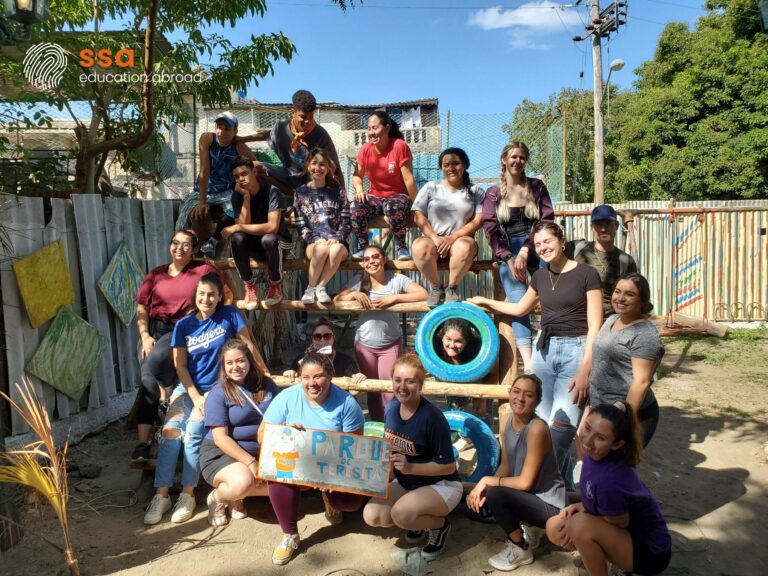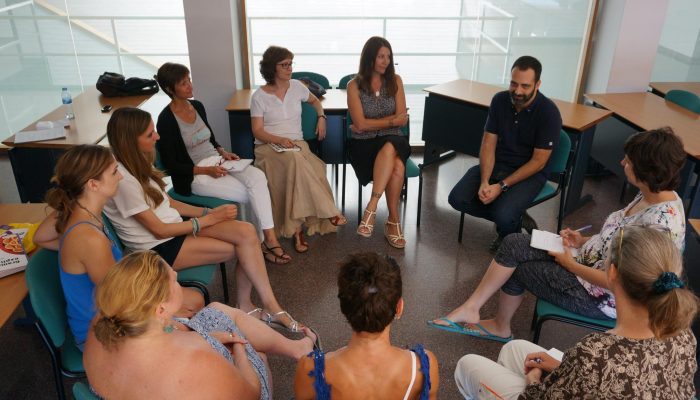More than 300,000 American college students study abroad each year.
Every continent (including Antarctica) has incredible programs. Students pursue this opportunity to explore the world and see something new.
While these experiences might be ideal for others, is study abroad worth it for you?
If you’ve been asking yourself that question, we’re here to help.
Here are 11 reasons why you should (or shouldn’t) study abroad.
Is studying abroad a good idea? Why studying abroad is worth it and a truly unforgettable experience
There are many reasons to study abroad. Here are some of our top ones!
1. Experience a different culture
One of the reasons studying abroad is so impactful is because you get to experience a different culture in your host country. Living in a foreign country allows you to see life through a new lens.
No matter how much you read about a place, it will never be the same as experiencing it yourself.
You’ll encounter customs and norms that are new and exciting.
For example, you might try new foods, celebrate different holidays, or learn about other ideas.
All these cultural differences make your time abroad memorable.
2. Learn in and out of the classroom
One benefit of studying abroad is that you are always learning. You’ll have educational experiences you wouldn’t have on your home campus.
Inside the classroom, you will learn from professors who have unique teaching methods. You will also gain insights from your peers.
Outside of the classroom, you’ll learn how to be independent and navigate new cultures. Don’t miss the chance for a day trip or weekend trip to nearby countries.
These are valuable lessons that will benefit you well beyond your time abroad.
3. Hone your language and cross-cultural communication skills
One of the best ways to hone communication and foreign language skills is to study abroad.
If your host country doesn’t speak your native language, you will use your skills daily. There will be plenty of opportunities to practice in class and the real world.
Even if you are going somewhere where you’re a native speaker, there still may be differences. Navigating contrasting communication styles enhances your ability to express ideas.
4. Make life-long friends
Making life-long friends while abroad is a rewarding life experience.
Many study abroad programs have international students from across the United States and the world. You’ll likely bond with them during your program.
Also, you can meet locals and other expats at school, at your residence, and in the city.
Sharing memorable moments abroad often turns into lifelong bonds.
5. Advance your future career
Studying abroad is not only about educational and cultural experiences. It looks great on your resume as it provides excellent career opportunities.
You can gain many hard skills from your period of time abroad. These include language skills or a specific area of study.
If you do an internship abroad, that’s a bonus! Make sure you have your student visa ready.
Also, study abroad teaches you soft skills that employers consider valuable. While abroad, you learn time management, adaptability, working with ambiguity, and independence.
6. Grow as a person
Ultimately, you’ll grow significantly during your period of time abroad.
You won’t return home the same person as when you left. And that’s a good thing.
While you’re away from home, you’ll gain new insights into life.
Navigating a new routine in a foreign country will make you more confident.
While abroad, you’ll learn so much about yourself and others.
You’ll look back and feel amazed by how much you’ve grown by the end of your program, and this newfound self-confidence will provide all sorts of additional opportunities.
The arguments against study abroad and why maybe study abroad is not worth it for you
Sike. You didn’t think we would bash study abroad, did you? Here are some common concerns about studying abroad and how to solve them.
7. Language barriers
Language barriers might be a reason why you wouldn’t want to study abroad.
You might think, if I can’t speak the language, how can I study abroad there?
One misconception about study abroad is that you have to have foreign language skills.
There are many English-speaking countries with study abroad programs.
Also, many non-English-speaking countries, like Spain, have courses in English. These programs often offer intensive language courses to develop your skills further.
Language barriers can deter some from studying abroad, but it doesn’t have to stop you.
8. You may miss friends and family
Lack of contact with family and friends is a valid reason for not wanting to study abroad.
But, a few things can help.
You can choose a short-term program if you don’t want to be gone too long. There are programs as brief as a few weeks or a school break.
Also, technology makes it easier to keep in touch while away.
Facetime, Zoom, and other platforms can help you connect for free across the globe.
Plus, the people you meet abroad will become new lifelong friends and family.
9. Study abroad can be expensive
Study abroad programs can be expensive.
Cost of tuition and daily costs can make opportunities seem impossible.
What the average college student doesn’t know is how many resources there are to help them.
Some programs cost as much as or less than your home tuition.
Plus, many schools let you take financial aid and scholarships with you. American students can also find study-abroad-specific funding on their campus and through their program.
While abroad, cost of living may be lower than at home.
Study abroad can cost a fortune, but not always!
10. Cultural differences may be challenging to navigate
Something that might be intimidating about studying abroad is navigating cultural differences.
If you study abroad, you don’t have to face that challenge alone.
You’ll have resources to help you before and during your international experience.
Before going abroad, you will have pre-departure orientations to guide you.
Onsite, there will be orientations and support throughout your time there.
You can ask your study abroad advisors, admissions staff, and program leaders for help.
Also, your fellow students will be going through the same thing as you.
11. Your major makes it difficult to study abroad
Some majors make it difficult to study abroad. There are degrees with requirements you must follow.
While more challenging, it’s not impossible to go abroad. The earlier you plan, the wider range of study abroad options you have.
Most schools require general education courses for every major. If you plan early and carefully, you can take those courses while abroad, in particular to maintain your college credits.
Another option would be to plan your international experience during a school break to not interfere with your schedule.
Also, you can request course lists from study abroad programs to see if they align with your degree.
Should I study abroad? Study abroad can be worth it. Unique experiences trump reasons not to study abroad.
So, should you or shouldn’t you study abroad? The answer to that is ultimately up to you.
We hope that this guide has inspired you to look into it and make an informed decision.
Know that there are countless resources to help you make studying abroad a reality.
We’re a little biased, but we think the experience is worth it!
Author Bio
Kelsey Toyoda is a freelancer and the creator of Global.Ology. You’ll often find her helping others go abroad and reading about what’s going on in international education. She loves to write about travel and is always dreaming up new content for her TikTok channel.






























